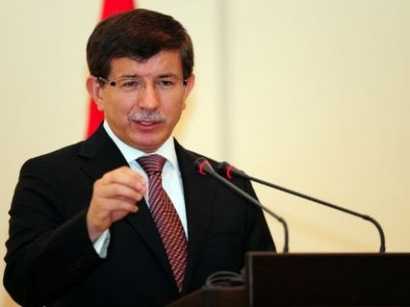Thomas Seibert
Last Updated: Nov 13, 2010
ISTANBUL // There was only one more word to be sorted out for an agreement on a joint statement by Turkey, Israel and Syria, only one more telephone call to make. But then, on a Saturday in December 2008, it all fell apart.
Ahmet Davutoglu, the Turkish foreign minister who was a key adviser to Recep Tayyip Erdogan, the prime minister, in 2008, was deeply involved in Turkey’s efforts to facilitate indirect talks between Israel and Syria. Last week, Mr Davutoglu described to a visiting delegation of politicians from the European Parliament in Istanbul how tantalisingly close the three countries came to reaching a breakthrough before the talks broke down as Israel attacked the Gaza Strip in December 2008.
Mr Davutoglu’s account not only sheds light on what went on behind the scenes in 2008. It also helps to explain why Turkey, a rising power in the Middle East that regards itself as a natural mediator for many conflicts in the region, finds it so difficult to trust its long-time partner Israel. Turkish-Israeli relations suffered a further blow earlier this year when Israeli soldiers killed nine Turkish activists on a ship leading a flotilla that carried aid for Gaza.
“We are ready to work for the Middle East peace process,” Mr Davutoglu told the delegation. “But we will not forget the flotilla issue.”
Mr Davutoglu spoke in response to an appeal by Daniel Cohn-Bendit, a leading Green deputy in the European Parliament, that Turkey put the flotilla incident behind it and resume its role as mediator.
Indirect talks between Israelis and Syrians about the future of the Golan Heights, captured by Israel in the 1967 war, proceeded well in 2008, Mr Davutoglu said. At the time, he was using one hotel in Istanbul as a base to shuttle between two other hotels in the city, where the Syrian and the Israeli delegations resided. “We wanted to have the fifth round in the same hotel, and the sixth one on the same corridor,” Mr Davutoglu said.
When Ehud Olmert, the Israeli prime minister at the time, visited Ankara in December 2008, negotiations gathered pace. The three countries were planning to have a joint meeting in Istanbul on December 29, 2008, Mr Davutoglu said. “Only one word” was still to be ironed out for a joint statement, the foreign minister said. Two days before the planned meeting, a phone call between Mr Olmert and Mr Erdogan was to finalise the last details.
“The phone call was to take place at 11 o’clock” on December 27, Mr Davutoglu said. “At 10.30, Israel attacked Gaza. They killed 148 people in one hour.”
The war in Gaza led to the abrupt end of the tripartite talks and threw Turkish-Israeli relations into a crisis. Mr Erdogan has said he was disappointed by Mr Olmert, who had not mentioned the planned attack on Gaza during his visit to Ankara days earlier, according to both sides. In January 2009, Mr Erdogan angrily stormed out of a panel debate with Shimon Peres, the Israeli president, at the World Economic Forum in Switzerland.
This year, the flotilla incident brought relations to the breaking point, according to a book about Mr Davutoglu’s foreign policy.
In the book Hoca, or Teacher, in a reference to Mr Davutoglu’s former post as a university professor, Gurkan Zengin, a Turkish journalist, describes a dramatic meeting between the Turkish foreign minister and Hillary Clinton, his US counterpart, immediately after the attack on the flotilla on May 31.
In the meeting in Washington, Mr Davutoglu told Mrs Clinton that Turkey wanted Israel to immediately release the Turkish citizens arrested on the aid ships. Otherwise, Ankara would take some “very harsh decisions”, according to the book. “What kind of decisions?” Mrs Clinton said. “If our citizens are not freed, we will sever all diplomatic ties with Israel,” Mr Davutoglu replied. “Clinton was speechless,” Zengin writes in his book.
The break in ties was avoided, but Turkey still insists that Israel will have to apologise for the attack before relations can return to normal. Israel has rejected that demand. As a consequence, relations are still frozen, and there are signs that the lack of trust stemming from the 2008 Syrian episode and the fall-out from the flotilla attack is hardening into a permanent confrontation.
Last month, the political and military leadership in Ankara passed a revision of the so-called National Security Policy Document, also known as the Red Book, Turkey’s main policy guideline covering domestic and foreign threats. According to news reports, the document refers to the regional “instability” created by Israel.
Turkish officials declined to comment on the contents of the Red Book, saying the document was confidential. But in his meeting with the European Greens in Istanbul, Mr Davutoglu made it clear that his country was not ready to let the flotilla issue rest.
“What if nine NGO [non-governmental organisation] members had been killed by Iran?” he asked. “There must be justice in international relations. No one attacks Turkish citizens.”


Leave a Reply